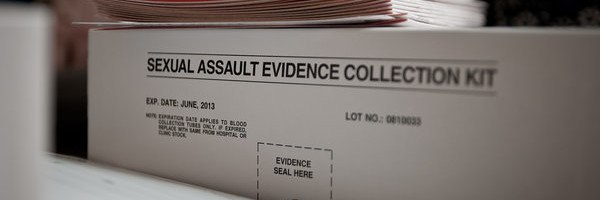Sexual Assault Evidence Collection Kits in the Emergency Department at Beth Israel Hospital

The chain of custody for rape kits pulls nurses off the floor for 3-4 hours. The resulting resistance among ED staff to perform the kit causes breakdowns in care for sexual assault survivors.
Overview
In the state of Massachusetts, a Sexual Assault Evidence Collection Kit, commonly known as a “rape kit,” is provided in the emergency room. In the (unlikely) event that the case results in a criminal prosecution, the rape kit is a key part of the case presented by sex crime prosecutors.
Beth Israel Hospital has a reputation for being one of the best hospitals in Massachusetts for survivors of sexual assault. Nevertheless, its emergency department is a representative example of the failed alignment of emergency departments’ operating models and the administration of care to sexual assault survivors.
Sexual Assault Procedure
See Figure 1 for an overview of a survivor’s experience in the ED.
The Department of Public Health funds a program of Sexual Assault Nurse Examiners (SANEs) who are nurses specially trained to administer the kit. These nurses are on call 24/7, but they serve a number of hospitals in the Boston-area. Therefore, they are not always available when the hospital pages.
This is the point at which the the operating model truly breaks down. When SANE is unavailable, a nurse from the hospital has to administer the kit. When they are taken out of rotation, it puts a strain on the rest of the shift to cover their cases. The nurse’s shift might end during those 3-4 hours, and nurses are not used to staying beyond their allotted shift. Sexual assault cases are also “high complexity, low frequency” cases. It’s possible that a given nurse has never seen a sexual assault case and yet there is a feeling that it’s very important to “get it right,” causing much anxiety. Finally, I don’t know how staff is paid at Beth Israel, but at Newton-Wellesley Hospital physicians and physicians assistants are actually paid based on the number of patients they see, disincentivizing them from providing care to one patient at a time. Furthermore, depending on how the hospital assigns its costs, it may be incentivized to rely heavily on SANE, whom they do not pay, so they can recognize revenues from the case without any associated costs.
The Costs
These operational misalignments cause great failures in the quality of care provided to sexual assault survivors in the ED. If a SANE is available, things can go relatively smoothly. But if SANE cannot respond to a page, which does not happen infrequently, a nurse’s unwillingness or inexperience in administering the kit can often be apparent to survivors, further marginalizing them. Perhaps more importantly, Beth Israel (and every other hospital in the area) will wait for insufferable periods of time (despite protocols that they only wait an hour) in the hopes that a SANE will become available. All of a sudden, the throughput time of a sexual assault survivor grows by 1-3 hours to somewhere between 6 and 9 hours. For someone who is fatigued by the trauma they have recently endured, who may be hungover or experiencing other physical symptoms of their assault, or who simply has a life, this wait can be deeply unpleasant or prohibitively long. It risks their access to care and to justice.
*This was prepared drawing on my own experience as a volunteer Rape Crisis Counselor in EDs for the Boston Area Rape Crisis Center and through interviews with advocates from BARCC, Beth Israel, and Newton Wellesley Hospital.



Argh this was painful to read, and it a (cringe-worthy) example of failure. I’m curious, are there any other countries that do this well? Do we have this system only because someone passed it and it’s hard to change the legal rules, or is this “best in class” across the world? Seems like there has to be a better system out there.
Also, can’t remember if I sent this to you. Did you read about Sexual Health Innovations in the NYT? They are collecting the story/details (without the physical evidence) online. They received $400k from Google Ventures to build the company: http://bluejaguars.blogspot.com/2015/11/the-war-on-campus-sexual-assault-goes.html
I agree with Andrea that it seems like there has to be a way to make this work without the failures you’ve mentioned. Is there data on how often SANE is available versus another nurse needs to do it? Would be interesting to know if there are trends in demand for SANE that the Department of Public Health could use to determine how many are on call at a given time.